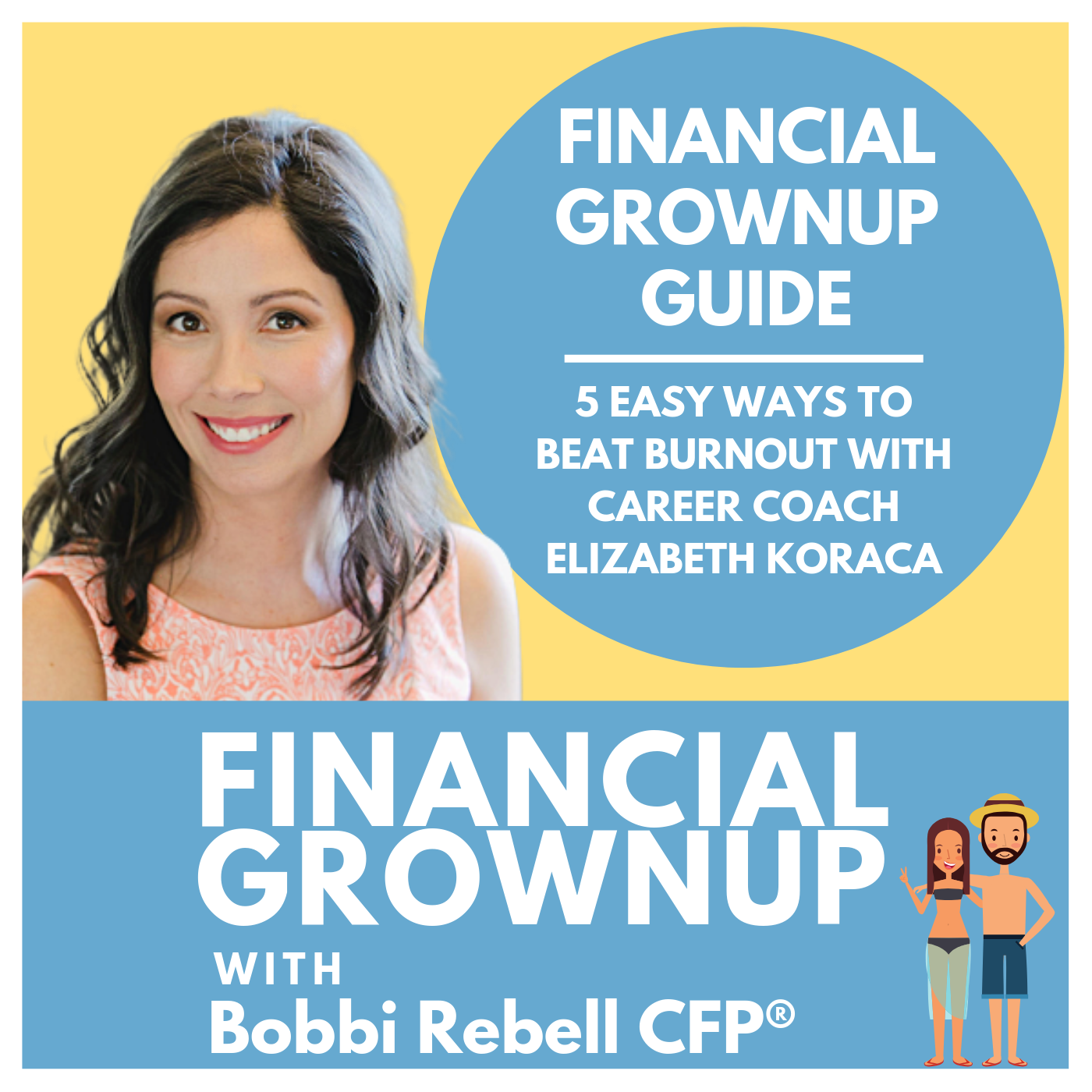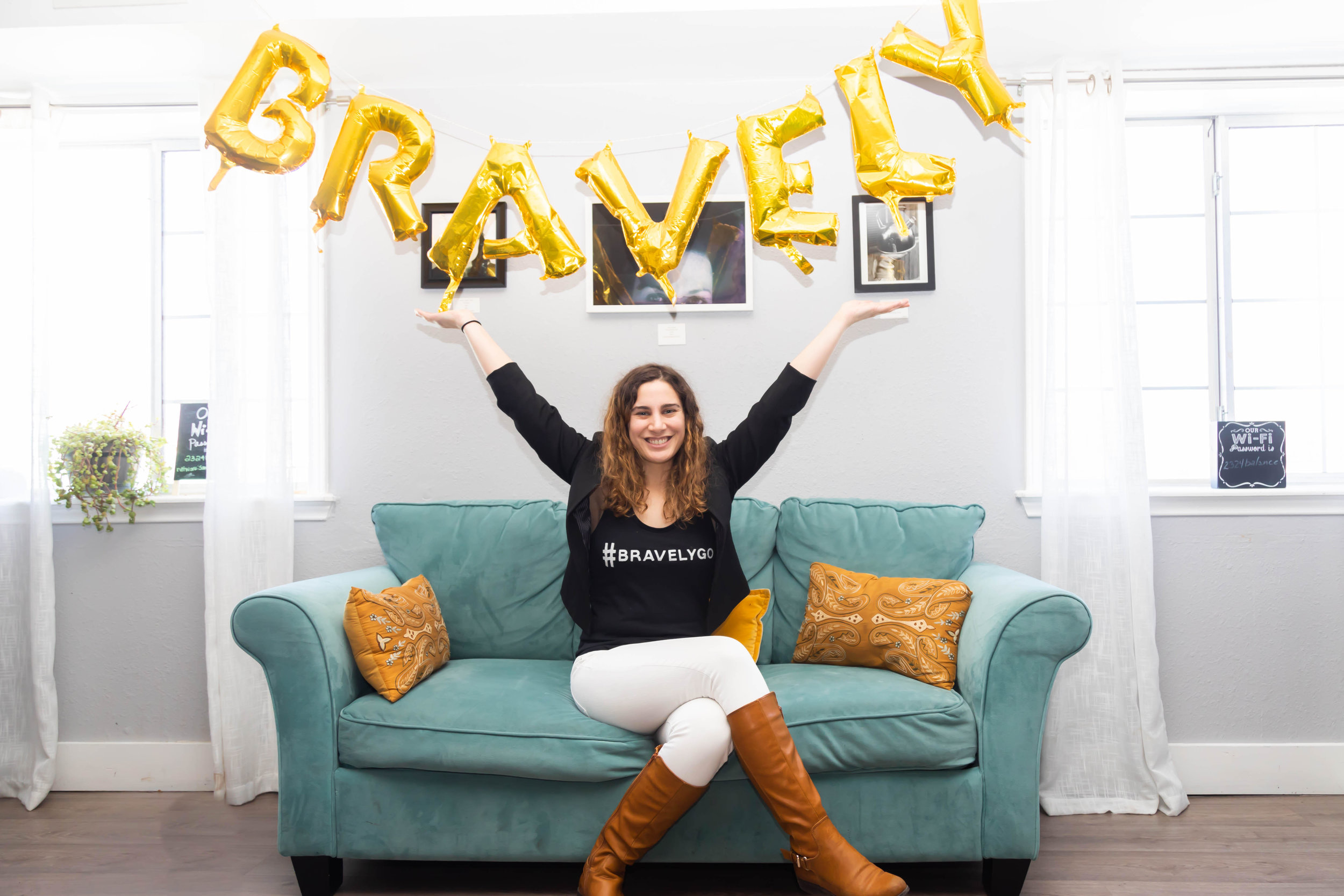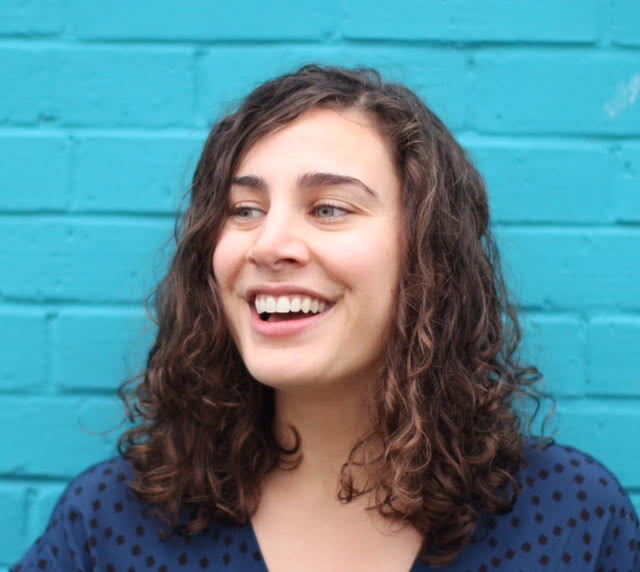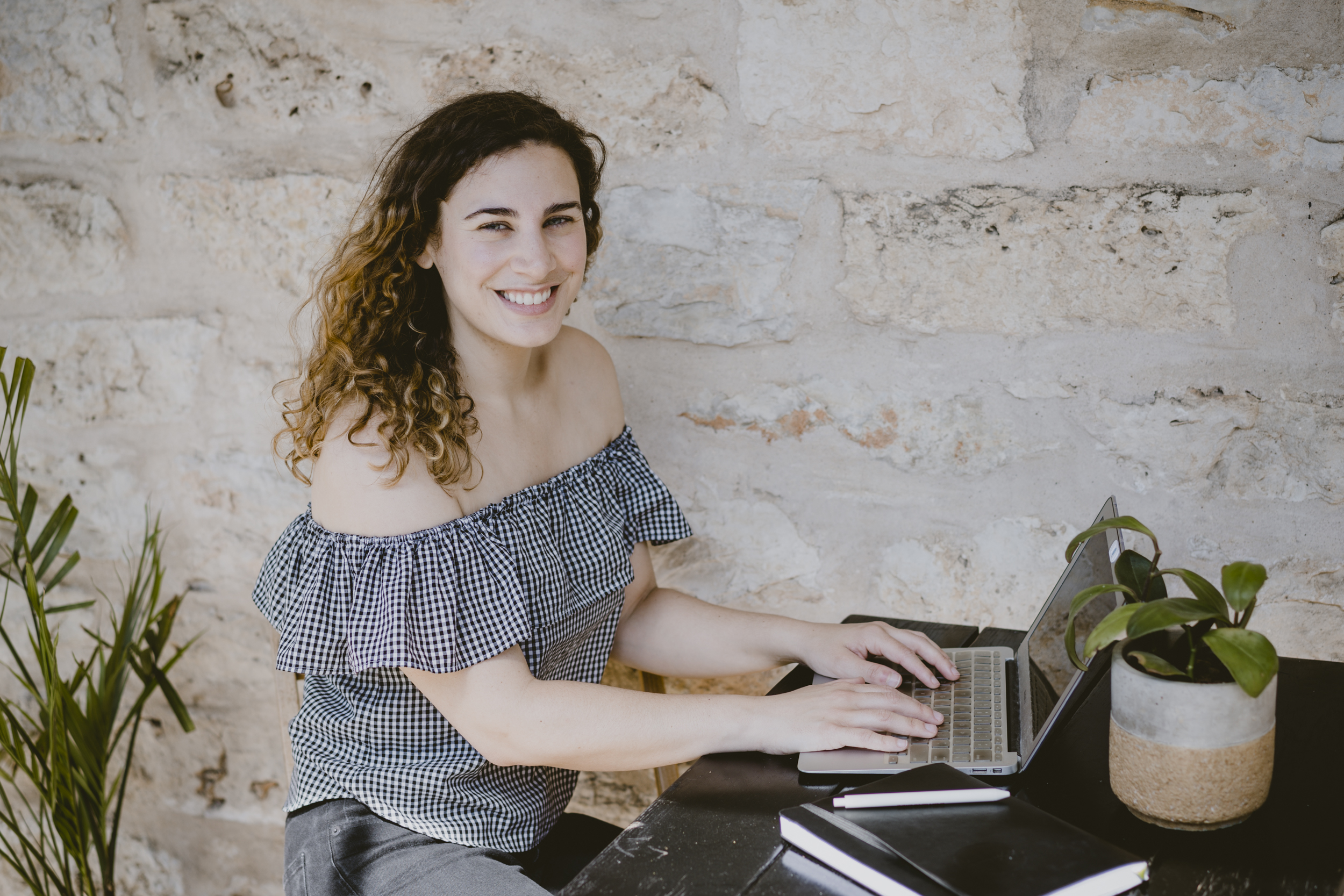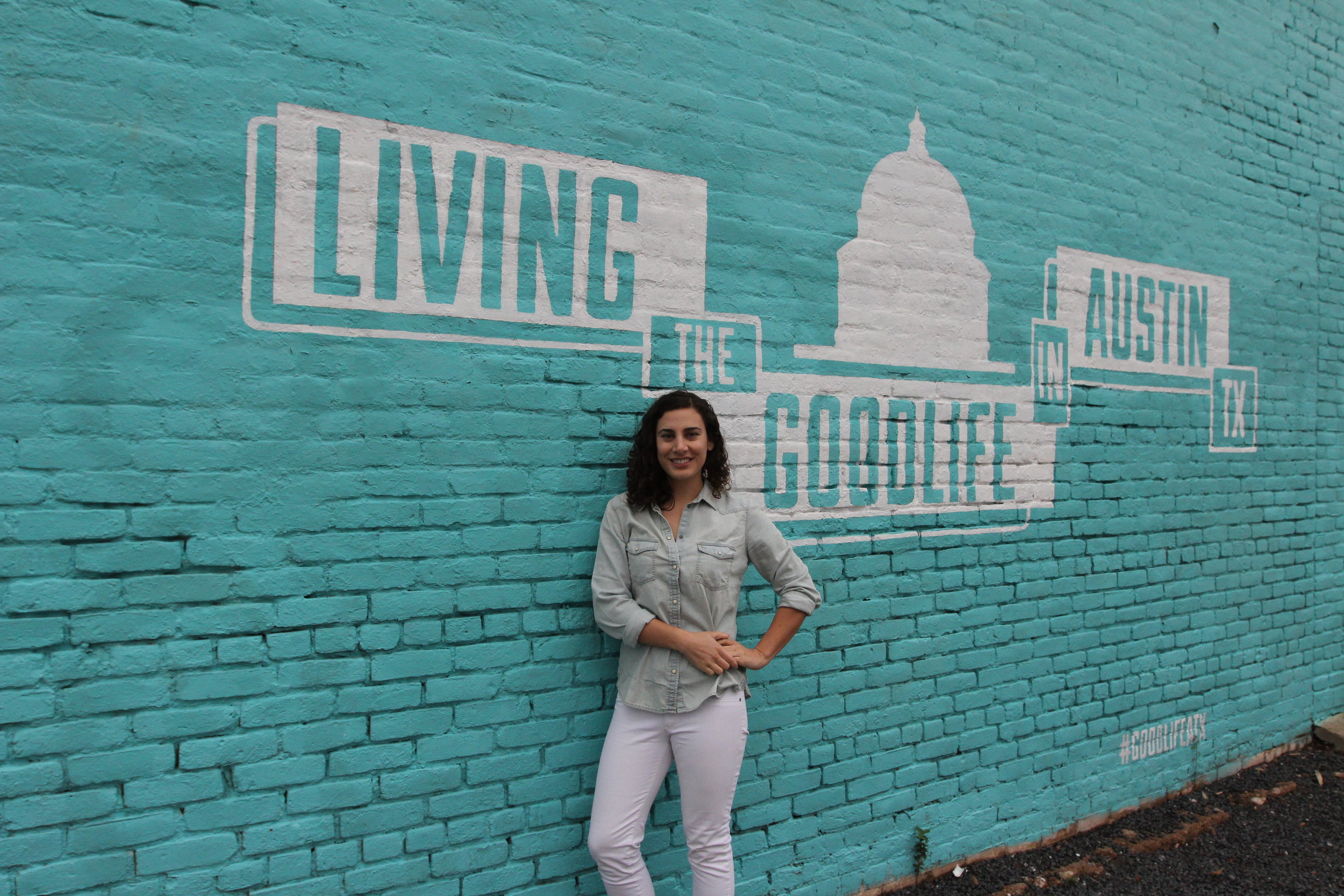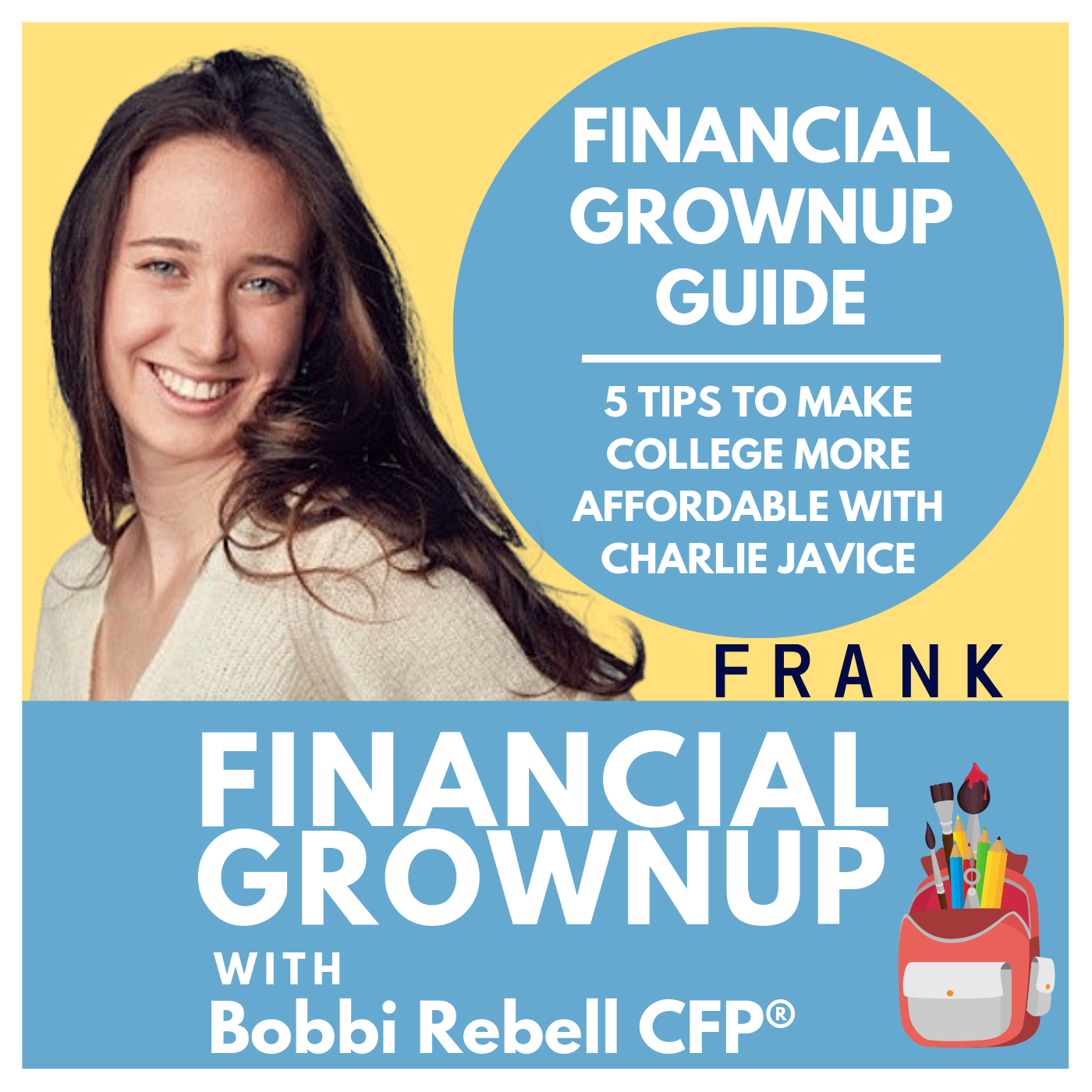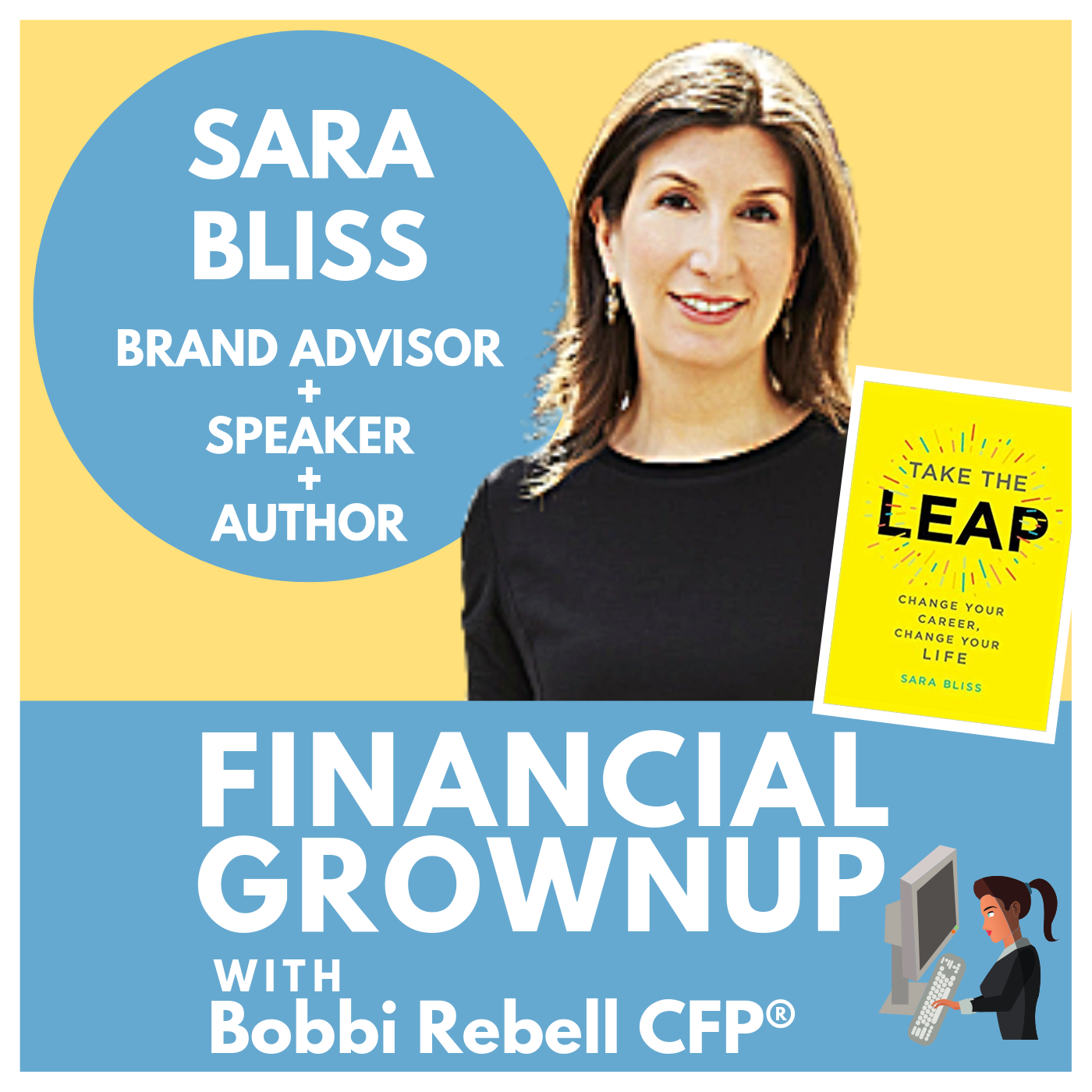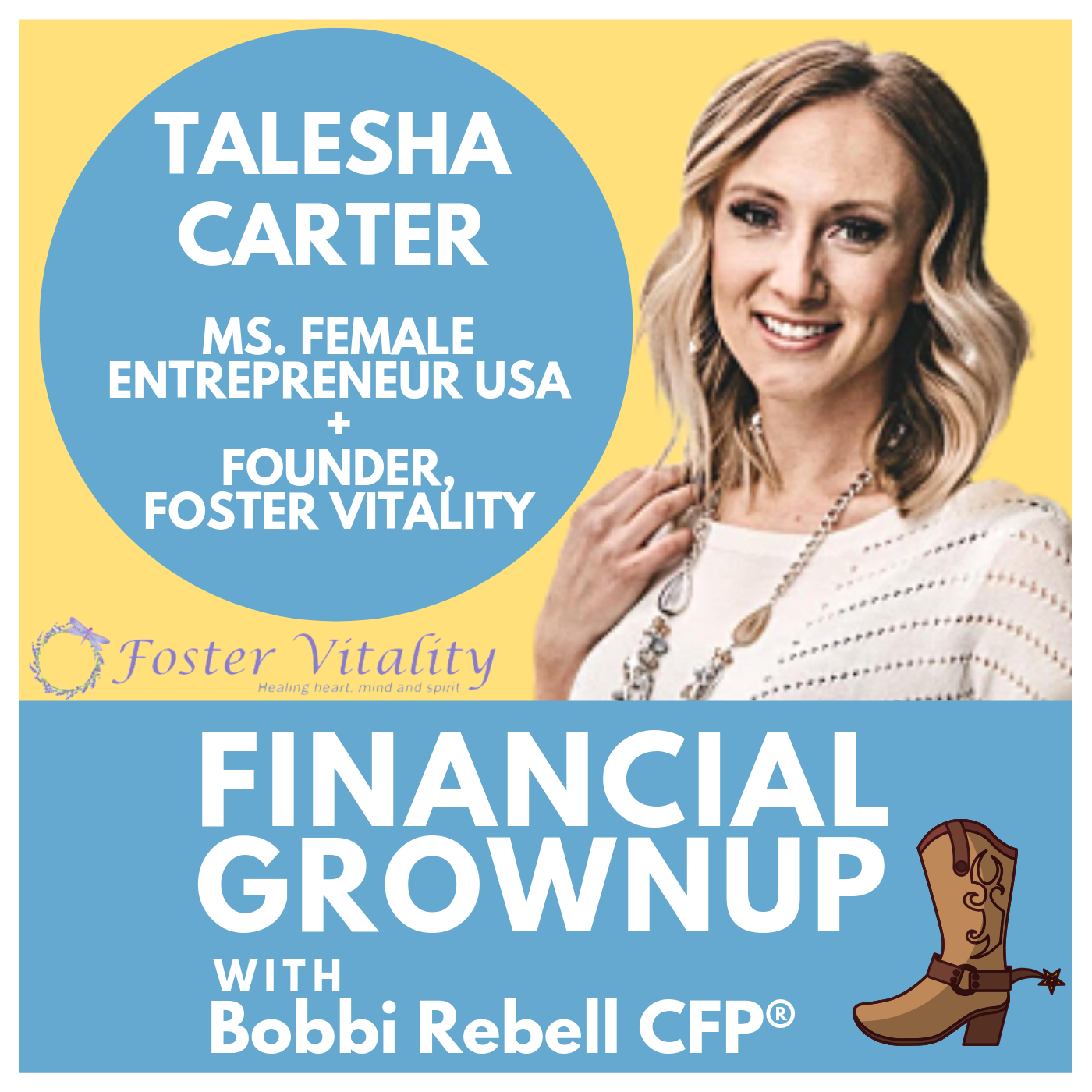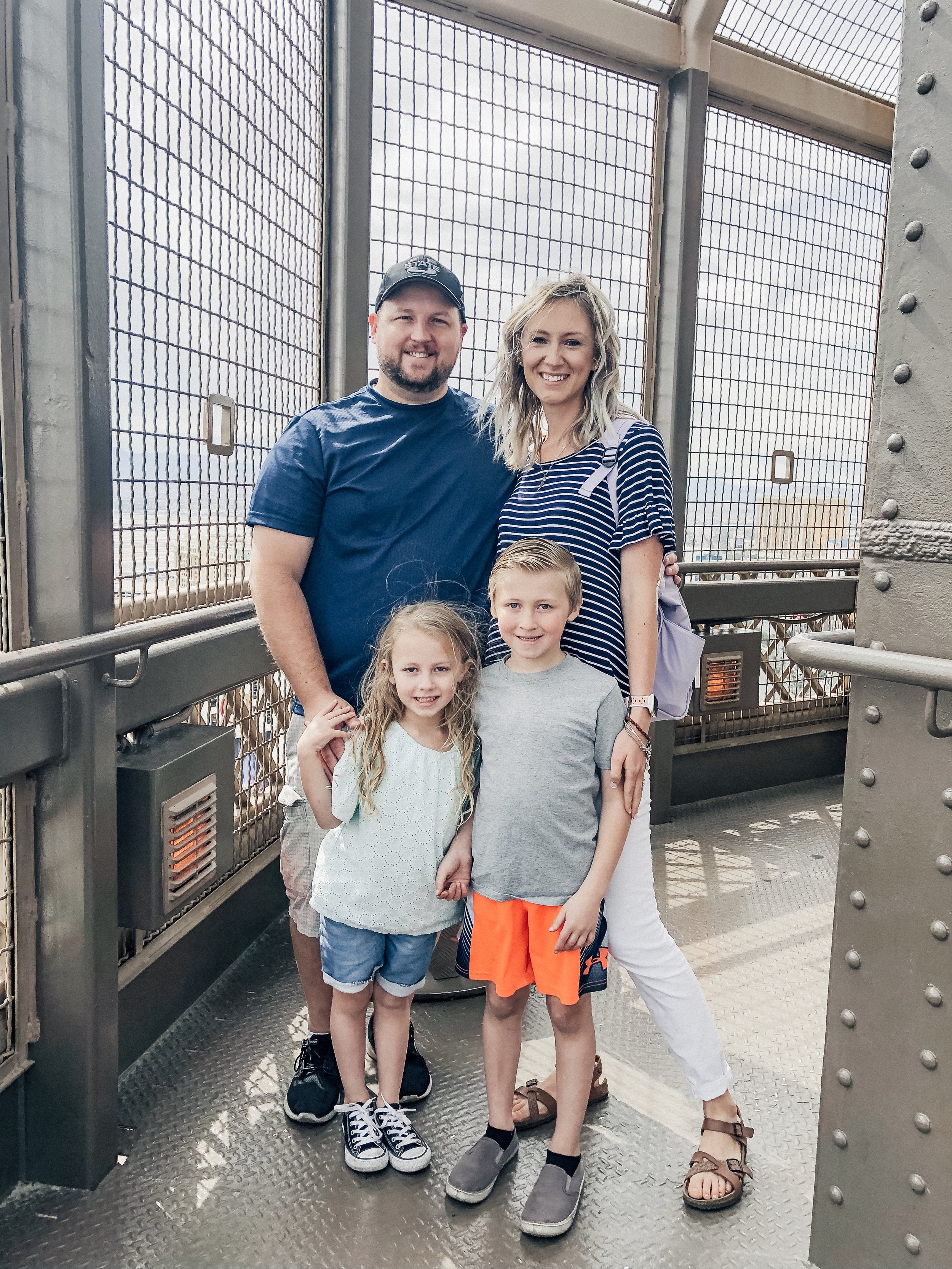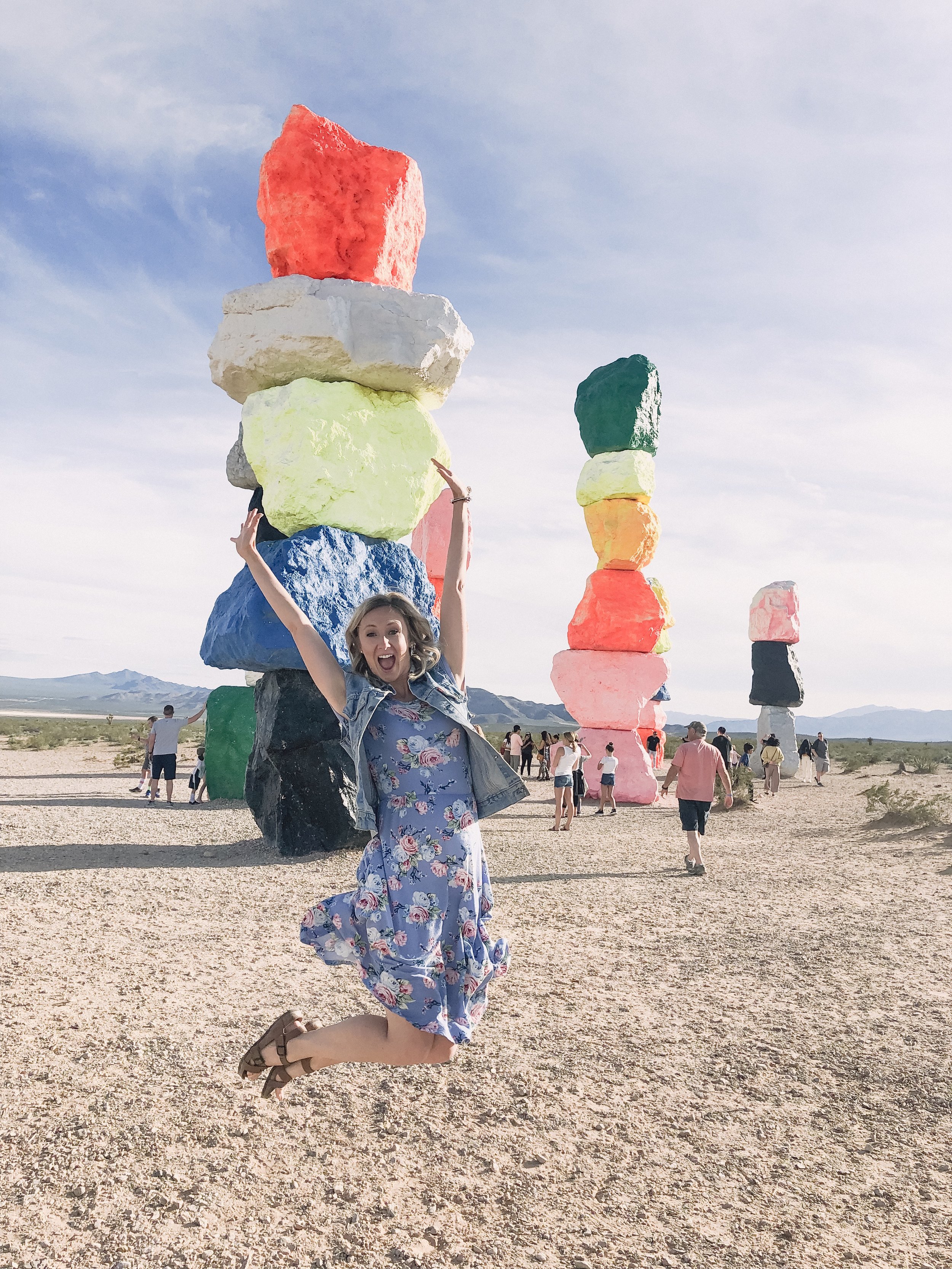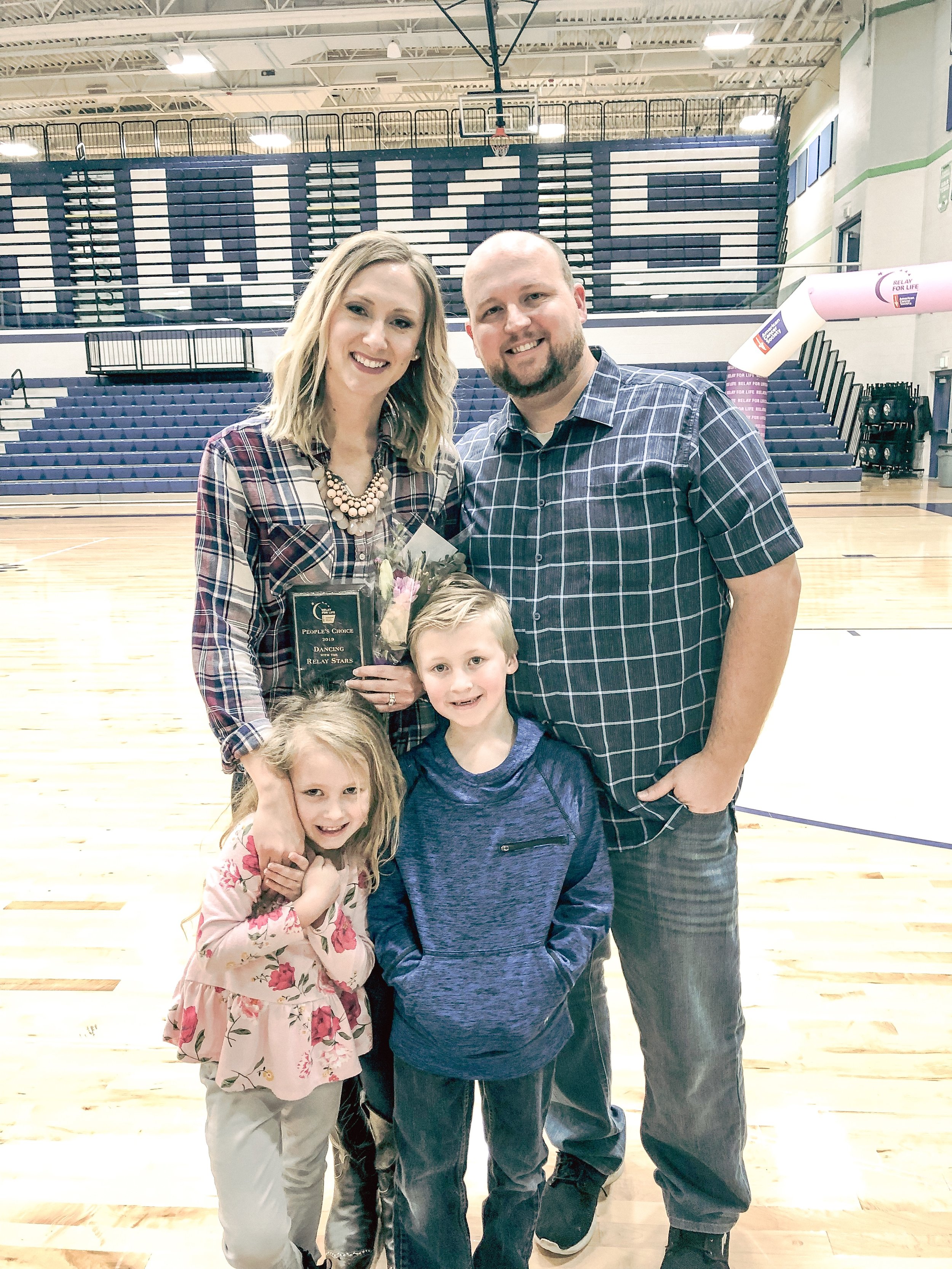“Understand, if you are a partial owner in a company what that actually entails and what your rights are.”
Kate Edwards, spent a year working as a founder with no salary and then a day before she would get the big pay day, she was shown the door.
You think it would never happen to you- but it can.
Kate's money story
Kate Edwards:
My money story relates to a previous startup that I was at and, you know, although of course I wasn't dating this person, as you mentioned it did end up becoming something where you think everything's all well and good at the beginning and then at the end it kind of turned sour. So I had started a company a few years back that was in the dating tech space, if you will, and my co-founder was great. He was a really great guy, you know, I had a couple other people working on the project and we essentially were working nights and weekends when we started. I eventually ended up quitting my job to work on the project full time and we worked together, building this product, for almost a year.
Bobbi Rebell:
Did you have legal paperwork when you quit your job? How was that structured?
Kate Edwards:
Yeah, actually we did, you know, we worked with lawyers and we all wrote the paperwork together. So in theory, we all knew what we were getting into conceptually, but I realized I ultimately had no idea what I was doing at the time because I really didn't understand the implications of what it means to be in a business partnership with somebody. So fast forward to nearly the end of a full year working together, one of my co-founders, he essentially said to me, "I want you to leave the company and I want you to walk away with nothing." And I said, "Hey, you can't do that-"
Bobbi Rebell:
Wait, wait, wait. But you were partners and you had paperwork.
Kate Edwards:
Yes.
Bobbi Rebell:
I mean, you were a partner if you are co-founder.
Kate Edwards:
Exactly. So essentially what the paperwork said was that all of us had equity or options essentially in the company, and as part of that, you're subject to what's called a vesting schedule. So a vesting schedule is determined by the company, was determined by us, and the standard vesting schedule is that if you have options in a company, you basically vest those options over time. So you have 100,000 options in a company that happens over the course of four years. And typically in this scenario and in most startups, you have a four year vesting schedule with the one year cliff. And a one year cliff, all it means is you can't access that. You can't purchase any options. You can't really own anything in that company, you know, until you basically have worked there for a year.
Kate Edwards:
So what this guy did to me was on literally day 364 he called me and said, "You're out." And there's a lot of legalities that happened and I'm simplifying it a little bit, but long story short, I walked away with nothing after working without a salary for a year and after creating this company that I really loved. Looking back, I think there's a lot of different things I could have done better, but the biggest thing that I realized, and the biggest lesson that I learned, was that it's not just about reading the paperwork or having a lawyer reading the paperwork, it's about truly understanding what it means to be in a partnership with somebody or what it means to be employed by somebody, or what does any type of ownership in a company mean.
Kate Edwards:
Since then, obviously, I've started a another company. We've been around for over three and a half years now, which is definitely crazy to think about, and we have 23 employees right now at Heartbeat. And so I've learned so much more. I've listened to podcasts, I've read so many more books to make sure that I have this understanding. And I also understand the impact of having a lawyer on your team. So I just wanted to share a little bit about the mistake that I made with the hope that anybody else who's working for a startup in the future can take my mistake and make sure that they don't do the same thing.
Bobbi Rebell:
Well, did you have a lawyer at the time? I mean, were there red flags that you just didn't spot because people didn't look at it? Because if you guys were co-founders, how could he decide to oust you? That's what doesn't make sense. How did he have that power?
Kate Edwards:
Yeah, it's complicated. And you know, honestly, it's not clear cut. It's not like this person owns 51% and this person owns 49%, right. We had a number of different people involved as well, and different people had put in different amounts of money and things like that. So ultimately it was a decision that he could make. And I think being ousted is something that people see as, "Oh, that'll never happen to me," so it wasn't something that I had necessarily thought would happen. So because of that, because when you go into creating contracts with people you do have a good relationship with them, you often don't think about what the implications are if they go sour. So yes, I did have a lawyer look at the original paperwork for instance, but you know, everything was very standard in terms of how a typical startup is set up.
Bobbi Rebell:
Interesting. So effectively he was able to control things because of the way the shares in the company were allocated.
Kate Edwards:
Absolutely. And there's also some things that weren't shared with me so I didn't have complete transparency into everything, which was another mistake.
Bobbi Rebell:
Can you elaborate at all?
Kate Edwards:
You know, just in terms of who the investors are and what his relationship with them are and things like that. All of those things were, you know, we actually didn't have very many investors. It was just a matter of understanding all of the players that were involved. But I do think the point of my story is not to speak ill of this person, but it's really just to say that I think understanding the types of stock options you have, you know, if you are a partial owner in a company, what that actually entails and what your rights are. If there's people on a board, those types of things are questions that I just straight up did not ask because I didn't know about. And those are all things that I think a lot of people make mistakes on just because they don't ask the right questions.
“I walked away with nothing after working without a salary for a year. And after creating this company that I really loved.”
Kate’s money lesson
Kate Edwards:
The lesson for our listeners is always, always understand essentially who you're getting into bed with. That refers not just to if you're starting a company, but very much so if you're joining a startup. I know a lot of millennials and younger people right now think it's really hot to work in tech, right? That's the cool industry to go into right now. But most people don't know what it means when somebody says, "Hey, here's 10,000 stock options or 50,000 stock options." They're an ISO, they're an RSU, there's all these types of kind of industry jargon that's thrown around and people get excited that they have some sort of ownership in the company, but they don't know what it means and they don't know how to act related to that. So the lesson is really read up as much as you can on what owning a part of a company or an option to own a part of a company means so that you're able to make sure that you maximize the money that you can potentially make from that opportunity.
Bobbi Rebell:
And it's also interesting that you signed a very standard contract, but yet there were still a lot of things that you didn't know, even though there weren't any necessarily red flags in the contract and a lawyer looked at it. So I think that's pretty interesting as well. Let's get to your everyday money tip because this is something that a lot of people have very strong feelings about one way or another.
“The biggest lesson that I learned was that it is not just about reading the paperwork or having a lawyer reading the paperwork, it is about truly understanding what it means to be in a partnership with somebody.”
Kate's everyday money tip
Kate Edwards:
I like to come in hot and my tip is to get an MBA. And the reason that it's my tip is just that it is a very clear return on investment. Data has shown a lot of people and particularly women are a little risk averse to getting an MBA because you have to take yourself out of the environment in the working world for a few years. You have to invest actual money, but you also have to invest time. I got an MBA, went to UCLA Anderson here in Los Angeles. I've done a little bit of research on this anecdotally as well, and from all the women I've spoken to, I now have friends from business school who work at Uber and Netflix and Hulu and McKinsey, all of these people working at these great companies, and they've all seen a very huge increase in their salaries.
I even had a friend who made $40,000 before going into business school and he came out of business school and made 200. The numbers basically show that the return on investment you see is somewhere between 250 and 325% return on salary immediately after graduating, and then of course lifetime earnings are increased as well.
Bobbi Rebell:
I think it's a very smart thing and I think that the networking, what you talked about with all the different people that you've met and now you have contacts at all those other companies, should also not be underestimated, the value of that as well.
Bobbi’s Financial grownup tips:
Financial Grownup tip number one:
It is scary out there. Standard legal documents don't always mean they will protect you. In fact, the standard may be designed to protect someone else. So just like with medical related decisions, it may be worth it to get more than one lawyer involved when agreeing to work for what was, in Kate's situation, a full year for free. And read it yourself also and ask the lawyer questions. But even then, know that things can go bad and don't blame yourself if it happens. It could happen to any of us.
Financial Grownup tip number two:
Get more educated. Kate is a big fan of the MBA and the numbers, they are real and compelling. I totally get it. It may not be for everybody and if that is not for you, you can still educate yourself with things that may not be as heavy a lift. MBAs are great, but that doesn't mean it is an option for everyone at every stage in their life and that's okay. I went, for example, and became a Certified Financial Planner and while I don't have a practice with financial planning clients, I know that first of all I could one day, it's always an option, it's always good to have options for different income streams. I know that it has resulted in getting me higher paying jobs.
Episode Links:
Blinkist - The app I’m loving right now. Please use our link to support the show and get a free trial.
Kate’s website www.heartbeat.com
Follow Kate!
Instagram - @k8eddie
Twitter - @k8eddie
LinkedIn - @kateavelineedwards
Follow Heartbeat!
Instagram - @Heartbeat
Facebook - @Heartbeat
Some of the links in this post are affiliate links. This means if you click on the link and purchase the item, I will receive an affiliate commission at no extra cost to you. All opinions remain my own.





